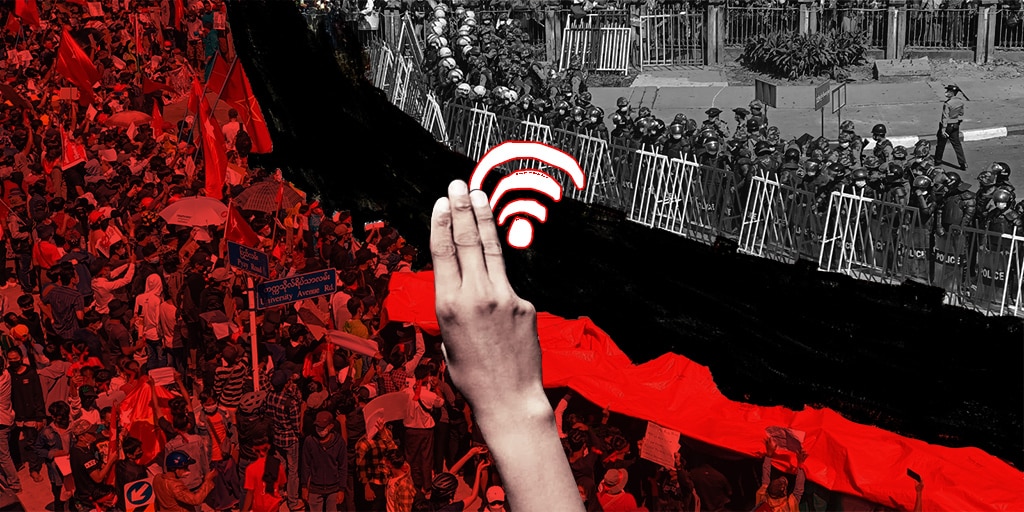Last week marked one year since the military besieged Myanmar and pilfered control of the nation through a violent coup — one full year of brutal crackdowns, serious human rights violations, and escalating digital control over the nation. The international community and technology companies must stand with the people of Myanmar and resist the coup — both physical and digital.
“The military junta is systematically ambushing civic space in Myanmar,” said Wai Phyo Mint, Asia Pacific Policy Analyst at Access Now. “Increment by increment, the despotic military is making online spaces inaccessible for the people of Myanmar, and eliminating all means of safe communication and information-sharing when they need them most. Silence and inaction from the international community bury their struggle, shielding grave human rights violations.”
Since February 2021, the junta has engaged in an endless onslaught of targeted attacks on digital space, including:
- Shutting down the internet in targeted parts of the country, and implementing nightly communications blackouts to shroud serious human rights violations and crush protest- organizing efforts;
- Violating privacy and safety rights by ordering telcos to release call logs and other customer data, while pressuring them to activate surveillance technologies that will allow them to hunt down and obliterate the people’s movement against authoritarianism;
- Intensifying efforts to curtail internet access by hiking prices of mobile data and implementing onerous requirements for SIM card access, and imposing unprecedented licensing and regulatory requirements for internet service providers and operators;
- Harassing individuals, and disseminating incitement to violence and hate speech online to propagate fear and insecurity.
“The world is morally obliged to stand with the people of Myanmar and take action to push back against the military,” said Dhevy Sivaprakasam, Asia Pacific Policy Counsel at Access Now. “This regime of terror — both online and offline — must be stopped.”
Through an open statement, civil society actors from across the globe are calling for the international community to publicly condemn the junta’s rights violations, and support calls for targeted sanctions against the military and military-linked individuals and businesses. The groups are urging telecommunications and technology companies to uphold their commitments to responsible business practices and join the pushback by:
- Immediately implementing data protection and privacy safeguards to resist increasing attempts to extend surveillance, censorship, and rights violations;
- Conducting due diligence and pursuing genuine public engagement in any ongoing and future decisions as regards their operations in Myanmar; and
- Ensuring that their policies and practices are based on international human rights standards.
Read the full statement.
